Feeling the Music: Berklee Offers Workshops at Perkins School for the Blind
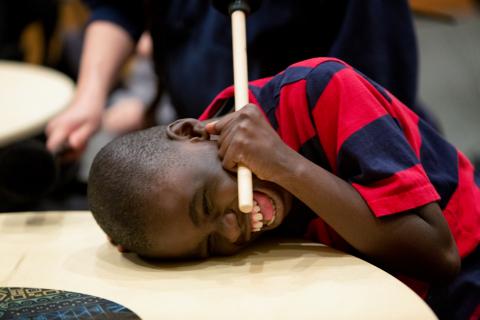
Perkins student Brian V.
Photo by Mike Spencer
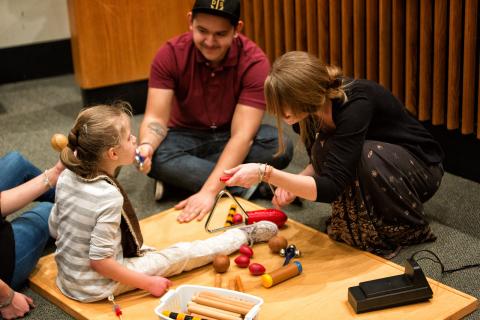
Perkins student Margot H. works with Berklee students Zakery Lewis and Kelsey Crawford.
Photo by Mike Spencer
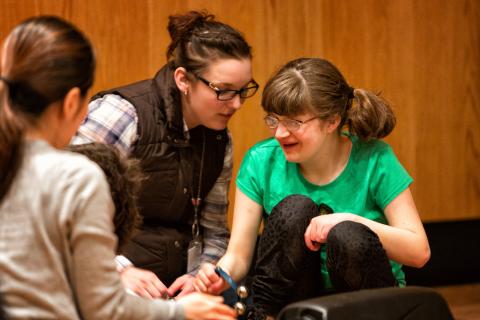
Perkins teaching assistant Stephanie Smith with student Slater S.
Photo by Mike Spencer
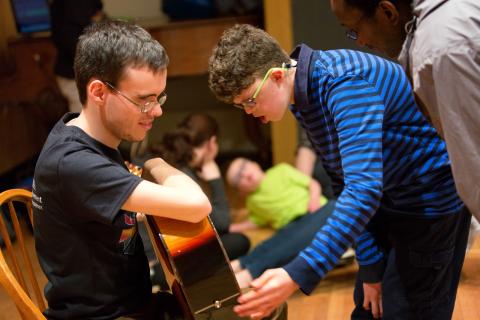
Perkins student Tim C. works with Berklee alumnus Noe Socha.
Photo by Mike Spencer
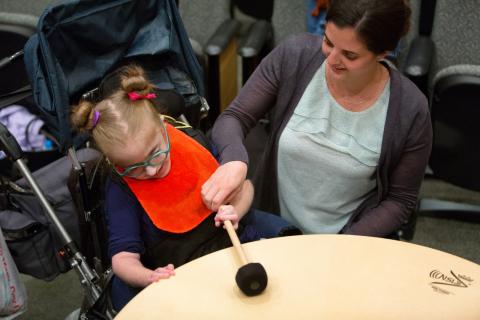
Perkins student Samantha A. with teacher Megan Connaughton
Photo by Mike Spencer
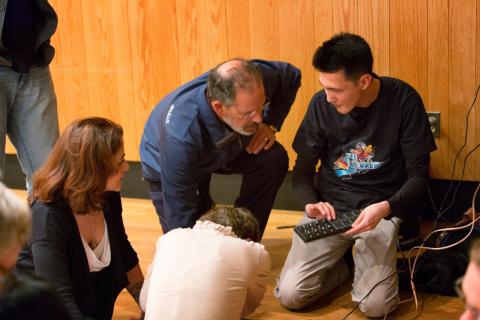
Berklee professor Chi Kim (far right) works with Perkins teacher Christine Boudreau and student Katriana W., while Berklee Trustee Steven Holtzman looks on.
Photo by Mike Spencer
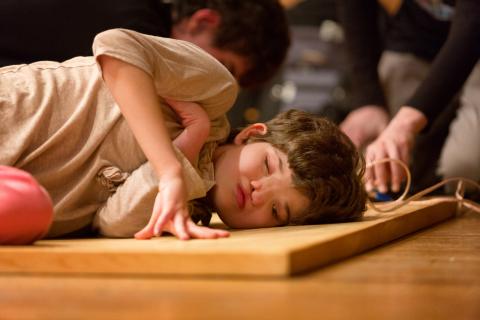
Perkins student Katriana W. feels vibrations through a resonance board.
Photo by Mike Spencer
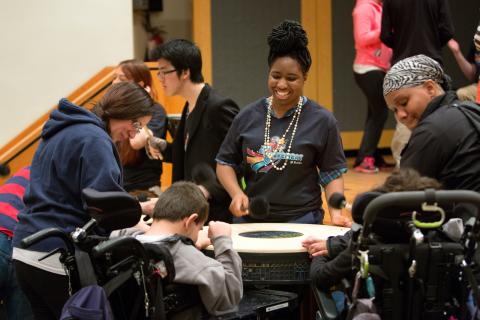
Berklee student Tony Campbell works with Perkins teaching assistant Brandie McAuliffe, student Chris C., student Lizzie S., and teaching assistant Berry Pierre.
Photo by Mike Spencer
On a Friday afternoon in early May, Berklee musicians brought a cello, an electric guitar, kettledrums, and other instruments to the school for students to experience firsthand. While the first two installments were a bit more formally presented, the Berklee contingent let the Perkins students explore the instruments however they liked during Friday afternoon's workshop.
Hunched over on his knees, Colby rocked back and forth excitedly as he fingered the small keyboard with his left hand and held a transducer to his chin with his right. He couldn’t hear the notes, but he could undoubtedly feel them: Kim’s setup featured “bass shakers,” the low-frequency device that makes your movie-theater seat feel like it’s rumbling during the action scenes. Kids at the previous session were lying on the resonance board to feel the vibrations of the music with their whole bodies, said Kim.
A few feet away, a boy named Tim moved his hands across an electric guitar being idly strummed by Noe Socha ’13. The recent graduate is now a teaching assistant in Berklee’s assistive music technology lab, which is equipped for visually impaired students.
“I like to give back what I’ve had,” said Socha, who is himself visually impaired. A recipient of Berklee’s Jimi Hendrix Award as its top guitarist, he has performed on tour with fellow alumna and voice professor Paula Cole ’90.
“They’re young, and they deserve something that makes them happy for the day,” said Socha, who is from Italy. “Even if it’s just a little thing, it’s important.”
Integrating Music on a Deeper Level
Kelsey Crawford, the Movement’s outgoing president—a week later, she would graduate with the class of 2015—explained that the goal of the Perkins workshop was to help the school establish a deeper commitment to assistive music programming.
“It’s been such a beautiful experience,” she said, beaming. Behind her, Socha plucked the notes of “Row, Row, Row Your Boat” for a student.
The collaboration between schools came about after some discussion between Megan Connaughton, a teacher in Perkins’ Deafblind Program, and her sister, Jean Connaughton, marketing and media manager for Berklee’s Office of Education Outreach and Social Entrepreneurship.
“Our philosophy is ‘total communication,’” said Megan Connaughton, who was at the workshop with one of her students, a little girl in an adaptive stroller. “We use speech, signing, photos, objects, and symbols.”
And they’d like to make music a more integral part of the program. The Deafblind students have a guitar and a keyboard at their disposal for use during “free choice” time, she said, but they would certainly benefit from more concentrated music studies.
“The kids responded really well,” said Connaughton as the workshop wrapped up. “They typically wouldn’t attend to something so long. This was a great opportunity to get Berklee in here. It would be great if we could do something like this long-term.”
Judging by the smiles on the students’ faces, they thought so, too.